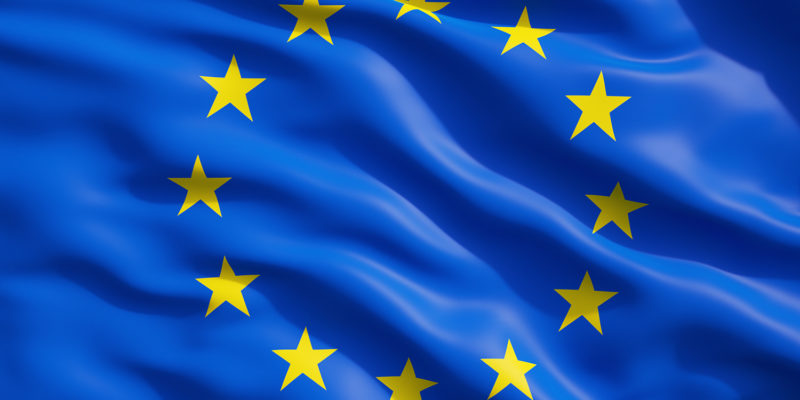EU Launches Critical Medicines Alliance; Is New Legislation on Mfg & Supply Chain Next?
The European Commission launched late last month, the Critical Medicines Alliance, a consultative mechanism for policymakers to address drug shortages and assure the supply of critical medicines in the EU. Does it portend potential legislation incentivizing manufacturing & supply-chain resilience?
Critical Medicines Alliance
The European Commission’s Health Emergency Preparedness and Response Authority, working with the Belgian Presidency of the Council of the European Union (EU), launched late last month (April 2024), the Critical Medicines Alliance. The Alliance brings together national authorities, industry, healthcare organizations, civil society representatives, the European Commission, and EU agencies to identify the best measures to address and avoid shortages of critical medicines in the EU.
“[The] launch of the Critical Medicines Alliance is our operational response to ensuring that our citizens always have access to the medicines they need,” said Stella Kyriakides, European Commissioner for Health and Food Safety,” in an April 24, 2024, statement. “We are adding an industrial dimension to our European Health Union, which will focus on how we address vulnerabilities in the supply chain and recommend [priority] areas of action, like strengthening manufacturing capacities and diversifying international supply chains. The Alliance will pool resources and expertise from governments, industry, health professionals, and civil society, coming together with a shared goal [of] ensuring that our patients are better protected and have more equal access to medicines they need. This is our European Heath Union in action.”
First announced by the European Commission in October 2023, the Alliance will focus on industrial policy and complements the reform of the EU’s pharmaceutical legislation as proposed by the European Commission. In January (January 2024), the European Commission called for interested stakeholders to join the Alliance, which now has some 250 registered members, including ministries of governmental agencies representing EU member states, companies or organizations as industry representatives, and non-governmental organizations.
Key strategic actions of the Alliance
Set up as an inclusive and transparent consultative mechanism of key stakeholders, the Alliance seeks to work to enhance security of supply, strengthen availability of medicines, and reduce EU supply-chain dependencies. Recommendations made by the Alliance will serve as a basis for a multi-year strategic plan, containing milestones and corresponding deadlines for their implementation.
To strengthen security of supply, the Alliance will develop strategic recommendations to address and avoid shortages. Key factors being analyzed include an over-dependency on a limited number of external suppliers, limited diversification possibilities, and limited production capacities. This will build on the European Commission’s vulnerability analysis of supply-chain bottlenecks of critical medicines on the Union list of critical medicines. The Union list of critical medicines, which was published by the European Medicines Agency last December (December 2023), refers to a list of critical medicines for the EU/European Economic Area, which contains more than 200 active substances of medicines considered critical for healthcare systems across the EU/European Economic Area, for which continuity of supply is a priority and for which shortages should be avoided. The list contains active substances of innovator and generic drugs covering a wide range of therapeutic areas and includes vaccines and medicines for rare diseases. It reflects the outcome of a review of 600 active substances taken from six national lists of critical medicines. The goal is update that list on an annual basis.
The European Commission carried out an analysis of supply-chain vulnerabilities for a first tranche of 11 critical medicines on the Union list, set to be published last month (April 2024). The outcome of this work will inform the scope of the mandate of the Critical Medicines Alliance. In addition, the European Commission will proceed with evaluating the remaining medicines in the Union list. It will then recommend priority actions for the near future and propose new tools to address the challenges it has identified. In particular, the recommendations will focus on mitigating structural risks, reinforcing supply by making demand more predictable, encouraging diversification, and boosting manufacturing.
Those efforts will also be part of discussions in the Alliance, which will help the European Commission to identify what it terms as “pipeline investment projects,” which could benefit from EU and national funding to strengthen manufacturing in the EU. The Alliance will also look at how market incentives, such as capacity reservation contracts and joint procurement, can be used to enhance security of supply of critical medicines. In addition, the Alliance is taking a holistic view of the supply chain, and its members will seek to identify new synergies to work with each other more effectively, including creating new partnerships. Given the global nature of the supply chain, these new partnerships could bring the diversification of the supply chain of critical medicines.
Next steps
The Alliance is launched for five years. Following its launch late last month (April 2024), the Alliance will begin its work, with publication of its first recommendations on actions to take to improve the supply of critical medicines foreseen by the end of the year (2024). While the first call for expression of interest to participate in the Alliance closed in January (January 2024), the Alliance remains open to new members at all stages of its operation.
Medicines for Europe, which represents generic-drug and biosimilar companies and manufacturers in Europe, is part of the EU Critical Medicines Alliance, and is calling for several actions to address supply of critical medicines in the EU. It supports a concrete shortage prevention-strategy with actions to reduce medicines shortages, such as EU procurement guidance in tandem with national market reform, which would reward security of supply and a greater use of real-time serialization data to monitor demand and supply imbalances. It is also calling for a partnership between the EU and the bio/pharma industry to restore EU manufacturing competitiveness by boosting innovation in production technologies. It is also seeking a shared commitment to ensure access, availability, and supply security based on EU solidarity by replacing competitive national stockpiling mandates with a what it terms a “coherent” EU reserve policy.
Medicines for Europe seeks to have those goals incorporated through EU legislation. “Our hope is to see support for our sector take shape in a dedicated Critical Medicines Act that covers necessary investment in manufacturing technology, market policies that support diversification and supply-chain resilience. and digital tools and commitments based on EU solidarity to tackles shortage risks,” said the association an April 24, 2024, statement.
In addition, the European Federation of Pharmaceutical Industries and Associations (EFPIA), which represents innovator-drug companies and national trade associations in Europe, issued its support for the launch of the Critical Medicines Alliance. “The Critical Medicines Alliance is a positive step towards addressing medicines shortages in Europe by protecting and enhancing the security of global supply chains and strengthening the region’s manufacturing capabilities,” said EFPIA in an April 24, 2024, statement. “EFPIA and its member companies welcome the opportunity to participate…The reasons for shortages are multifactorial and complex, with nuances between different actors in our sector, and we look forward to working in partnership to address these challenges over the coming years.”
Specifically, EFPIA says it will work within the Alliance to help build resilience through a number of recommendations such as:
- Boost EU leadership in technologies of the future, such as advanced therapies, mRNA, and bioproduction.
- Accelerate digitalization to support greener manufacturing, greater regulatory capacity, and efficient use of skilled workforces.
- Promote sustainable procurement conditions, noting that for multi-source critical medicines, if price is used as the only parameter for purchasing, there is no incentive for manufacturers to invest.








